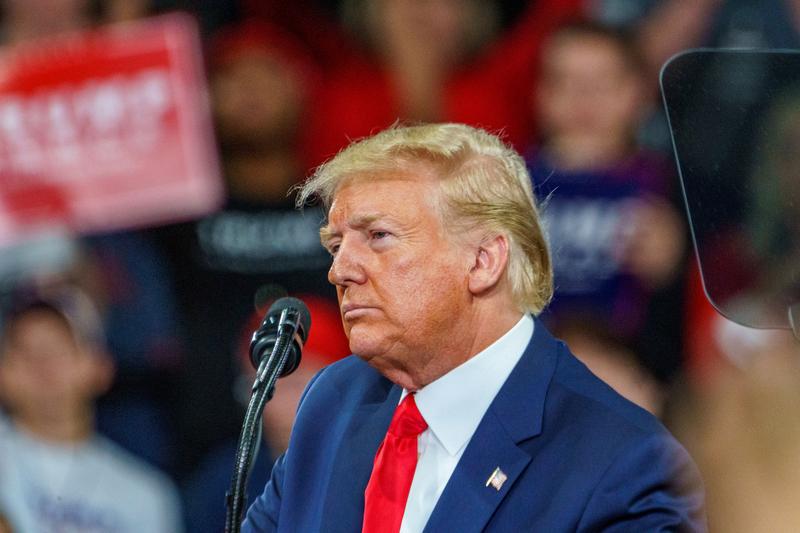The administration of President Donald Trump is planning an executive order to start the process of dismantling the Department of Education. This marks a notable change in federal education policy, though it also recognizes the president’s restricted power to abolish the agency entirely without congressional approval.
During his presidential campaign, Trump pledged to abolish what he termed ‘wokeness’ and ‘indoctrination’ within the department.
The term “wokeness” originates from African American vernacular and signifies being aware of racial or social discrimination and injustice. Recently, it has been used critically in political discussions, especially among conservatives, to indicate what they perceive as an overemphasis on progressive social justice issues, particularly in the contexts of education and corporate environments.
The White House revealed its plans on Monday, February 3, and stated that additional action will be taken later in the month.
White House insiders report that the proposed executive order would “halt all agency functions not explicitly detailed in the statute or relocate certain functions to other departments.” This move aligns with similar changes already being made at the U.S. Agency for International Development (USAID) by Elon Musk’s Department of Government Efficiency (DOGE).
Former House Speaker Newt Gingrich stated in 1995, “I do not believe we need a federal department of homework checkers,” reflecting a long-held conservative view that is now gaining traction.
The Education Department, with a budget of $268 million, is responsible for managing funding for economically disadvantaged K-12 schools, special education programs, educational metrics and evaluation, higher education funding, and federal student aid. The majority of its funding disbursements are dedicated to student aid programs.
As business hours ended on Friday, many Department of Education employees received letters placing them on administrative leave. This follows a similar pattern to recent actions at USAID, where Musk’s team has obtained access to sensitive payment systems and has reportedly locked some federal career employees out of their agency’s computers.
According to insiders, “Elon Musk’s government efficiency operation, which is working at the Education Department headquarters, is seeking access to agency records” and has caught their attention.
The timing of the executive order poses additional challenges as Linda McMahon, President Trump’s nominee to lead the department, awaits her confirmation hearing. A debate has started internally about how the executive order might influence McMahon’s ability to address questions related to the president’s agenda during her confirmation process.
In the meantime, Representative Thomas Massie has reintroduced legislation aiming to abolish the Department of Education by 2026. “Unelected federal bureaucrats should not control children’s education,” Massie stated, advocating for state and local control of education policy.
The administration’s strategy seems to be twofold: using executive power to scale back the department’s reach while simultaneously formulating legislative proposals for its ultimate elimination. Education specialists warn that the department’s dismantling could significantly affect federal student loan administration, enforcement of civil rights in schools, and support for low-income students.
Musk’s DOGE team has already accessed a federal student aid dataset containing the personal information of millions of student aid recipients, raising concerns about data security and privacy. This action follows President Biden’s student loan forgiveness program, which Republicans vehemently opposed.
Under former President Biden’s administration, Republicans criticized the Education Department’s policies related to diversity, equity, and inclusion programs.
Musk’s team has already placed several thousands of people on leave. A government-wide appeal to at least two million federal workers has encouraged them to resign by September 30.
On Thursday, February 6, a federal judge in Massachusetts temporarily blocked the Trump administration from allowing around two million federal employees to voluntarily resign in exchange for seven months of pay. The program, set to expire at midnight, was part of a broader plan by President Trump and Elon Musk to significantly reduce the federal workforce.
Judge George O’Toole Jr., appointed by President Clinton, extended the deadline until at least Monday, when the court will review a legal challenge. The delay leaves uncertainty for more than 40,000 federal workers who had already agreed to participate in the program.
Over the past week, the Trump administration has pushed employees to accept the offer, while major government unions have urged them to reject it.
Despite the judge’s ruling, Trump and Musk’s efforts to downsize the federal government are expected to continue. The administration aims to cut staff at the U.S. foreign aid agency from over 10,000 to approximately 290 positions, and officials have been informed that about 800 contracts and awards managed by U.S.A.I.D. are being canceled.











